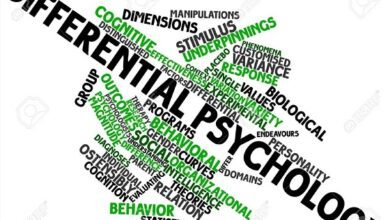What is Binge eating disorder with symptoms causes and treatment
Binge eating is a disorder of eating behavior characterized by episodes of periodic binge eating. That is, a person suffering from this disorder has an uncontrolled way of eating, which turns into a noticeable increase in weight.
People with binge eating disorder lose control over their eating behavior and continue to eat large amounts of food despite not feeling hungry or even full.
The origin of this eating disorder is a psychological problem, since the person loses control of his behavior and, although his body indicates that he does not want more food, he continues to eat in abundance.
Differences with bulimia
If you’ve ever lived closely with an eating disorder, either in the first person, or with your family or friends, now you’re probably asking yourself a question… Is this disorder called binge eating disorder the same as the famous bulimia nervosa?
It is a very similar disorder, but different, as it differs mainly in the absence of compensatory behaviors. In other words: in bulimia nervosa, there are also episodes of binge eating, in which you eat excessively, with great anxiety and unable to stop eating large amounts of food.
However, after the end of the compulsive episode, guilt and anxiety appear for having performed an unwanted behavior, since the goal of a person suffering from bulimia is to reduce weight due to dissatisfaction with the body and body image.
This guilt and anxiety over overeating causes the person to engage in compensatory behaviors, whether purging, such as inducing vomiting or using laxatives, or non-purging, such as fasting or extreme exercise to lose weight.
In contrast, binge eating disorder differs in these last two respects:
- After the compulsion, there is no compensatory behavior.
- In the absence of compensatory behavior, there is greater weight gain caused by binge eating episodes.
Symptoms
As just mentioned, people who suffer from binge eating disorder often suffer from weight gain, so they are often overweight or obese. However, this is not always the case. You can have a binge eating disorder and be a normal weight.
Therefore, we will see what are the symptoms that best define binge eating disorder and, if they occur, they increase the likelihood that this problem is being suffered.
- Eating large amounts of food (binge eating).
- Continue eating when you are full.
- Eat compulsively and at high speed while bingeing.
- Eat to the point where the large amount of food ingested causes discomfort.
- Consume high-calorie foods normally during binge eating.
- Bingeing alone or even hidden frequently.
- Perform binge eating normally and not on special occasions, such as parties or celebrations.
- Binge eating can occur in different settings (for example, start at a restaurant and continue eating at home).
- Feeling that you cannot control your eating behavior and cannot stop doing so.
- Presenting states of anxiety or stressful situations due to ideas related to weight, figure, diet, etc.
- Use binge eating to reduce this anxiety.
- Present feelings of guilt, disgust, self-loathing, or depression for committing the binge.
- Having difficulty explaining and sharing feelings about binge eating with others.
- Frequently unsuccessful dieting, winning and losing several times (yo-yo dieting).
Characteristics of people with binge eating disorder
People suffering from binge eating disorder are considered halfway between people with bulimia nervosa and those with obesity.
They usually show high levels of dysphoria and psychological discomfort due to their problem, in addition to a perfectionist, complete and controlling personality,
with a great concern for failure.
They tend to have a high predisposition to depression, so it is likely that they have had such an episode before. Likewise, they also frequently experience panic and anxiety attacks.
They have a change in body image, overestimating their weight and height, although much less than what can happen in people with anorexia or bulimia nervosa.
However, the fact that they are generally overweight or obese makes them dissatisfied with their physical appearance and overestimate obesity (they look fatter than they really are).
Complications
In addition to the psychological discomfort that this disorder causes in the person who suffers it, it can also cause serious health problems. These alterations are usually produced by obesity and include, among others:
- Diabetes Mellitus
- Hypertension
- High cholesterol.
- disorders of the spleen
- Heart problems.
- Breathing problems.
- colon cancer
- Menstruation disorders
- Reduced mobility.
- Sleep disorders.
Statistics
Prevalence data are confusing today, as for some years this disorder has been known as a psychopathological entity,
However, current data indicate that it is the most common eating disorder among the population of the entire planet. Currently, this disorder is said to affect approximately 2% of the world’s population.
What is clear is that the prevalence of this disorder is very high among obese people, as more than 20% of people with obesity also have binge eating disorder.
This disorder represents one of the biggest risk factors for obesity, as two out of ten obese people are caused by binge eating disorder. Likewise, a higher prevalence of this problem has been identified in women than in men.
Causes
The specific cause of this disorder is currently unknown, although it seems clear that there are a number of factors associated with its development. Like other eating disorders, it seems clear that binge eating disorder results from a combination of biological, psychological, and environmental factors.
psychological factors
As far as the psychological aspect is concerned, there seems to be a certain correlation between depression and the onset of this disorder. P half of people suffering from binge eating disorder present or have had a depressive episode.
However, the relationship between depression and binge eating disorder has not been widely studied and it is not known whether depressive states actually act as a cause of binge eating disorder.
Likewise, symptoms such as sadness, anxiety, stress or other feelings of personal discontent also seem to be closely related to this eating disorder.
In addition, impulsivity and substance abuse seem to be factors that can act as triggers for binge eating disorder. All of this indicates that this disorder has a strong emotional component, therefore alterations of this type may favor its appearance.
However, an emotional disturbance does not explain the appearance of this disorder, there seem to be many other factors at play.
biological factors
Currently, the connection of certain genes with this pathology is being investigated, a fact that would indicate that binge eating disorder also contains a hereditary component.
This psychopathology is generally more frequent among people who have relatives who have suffered from it before. Likewise, it seems that hormones such as serotonin may also be involved in its development.
environmental factors
Finally, with regard to environmental factors, it has been observed that people suffering from this disorder often come from families with poor eating habits.
These are usually families that overeat and place little emphasis on the importance of leading a healthy diet and lifestyle and do not value the nutritional component of food.
It seems that there is no single cause for this disorder, but it originates due to the conjunction of psychological, genetic and environmental factors.
Prevention
Although not all binge eating disorders can be avoided, the causes of this psychopathology that we have just mentioned indicate that we can take certain actions to try not to appear.
Receiving a good food education during childhood and adolescence, acquiring the value of nutrition and physical health, seems to be an important factor in its prevention.
Likewise, stopping in time and properly dealing with problems related to mood disorders, self-esteem issues or other emotional problems can also save us from ending up suffering from a compulsive eating disorder.
Treatment
Binge eating disorder is a serious pathology; therefore, if you suffer, it is very important that you receive the proper treatment and do everything possible to try to redirect your eating behavior.
At the pharmacological level, drugs such as desipramine and imipramine (tricyclic antidepressants) have been shown to be effective in decreasing the frequency and duration of binge eating.
Likewise, cognitive behavioral treatment (psychotherapy) is often helpful in improving eating patterns. Psychological treatment should aim to modify and improve all areas of the person that are not functioning properly.
Work should be done to improve physical fitness and reduce excess weight, through the establishment of adequate eating habits and healthy physical activity.
Likewise, you should work directly on binge eating to make sure they don’t show up and make strategies to manage anxiety and impulsivity.
Finally, it is more likely that it will be necessary to carry out a cognitive restructuring of the body image, so that it is no longer distorted, and to work to achieve the emotional stability that allows the compulsion not to appear again.




